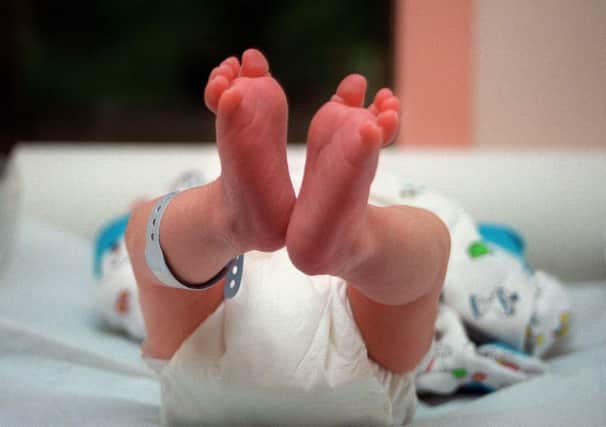Miscarriage: Scotland's maternity hospitals must be given the funds to ensure mums who've lost a baby can grieve away from others bonding with their newborns – Monica Lennon MSP


Other times, an idea is brought to the table and is met with disbelief that it not already the norm.
For an example of this, we need look no further than Scotland’s maternity hospitals, where a transformation in how women and families affected by baby loss are treated is getting underway.
Advertisement
Hide AdAdvertisement
Hide AdThe case for women who experience unexpected pregnancy complications and miscarriage being cared for with dignity and compassion, in a space away from the busy labour ward where new mums and babies are bonding, is unanswerable.
That this is not already established practice, beggars belief.
However, change is coming that will finally see women in maternity hospitals dealing with the worst possible news have access to dedicated space – a commitment wrapped up in the Scottish Government’s pledge to rollout a package of compassionate miscarriage care by the end of 2023.
And this is thanks to the persistence of a Lanarkshire mum. A self-described “wee mammy from East Kilbride”, Louise Caldwell sadly miscarried at 12 weeks and has been on a mission to transform miscarriage care ever since.
She is succeeding, and I am proud of the way my constituent has persuaded the Scottish Government to change its policies, whilst dealing with her own loss and trauma.
Sadly, one in four pregnancies end in loss during pregnancy or birth. Regardless of where an expectant parent is on their pregnancy journey or whether they have other children, this can be a devastating and lifechanging experience.
Sixteen years ago this week, I was utterly cocooned in the new-born baby bubble, having just delivered my daughter at Wishaw General. Wrapped in your own elation, it is easy to be oblivious to the pain and suffering of a heartbroken family, in the very same ward.
Louise’s experience in the very same hospital could not have been further from my own.
Advertisement
Hide AdAdvertisement
Hide AdAfter receiving the devastating news that she had lost her baby, Louise was told to return to Wishaw maternity unit the next day to deliver.
Assuming there was a special ward for pregnancy loss, Louise and her husband, Craig, were shocked as they were taken to the regular labour suite.
As she described the emotional anguish of walking along the corridor with a memory box, I was numb. Hearing babies crying and seeing thank you cards given to midwives was quite simply torture for Louise.
When the women’s health minister met with us, she promised Louise that this unacceptable practice would end.
NHS Lanarkshire has confirmed dedicated facilities for women and families who lose their babies at University Hospital Wishaw will be in place this autumn.
Having supported Louise’s campaign from the start, I shed a tear for the difference these facilities will make to bereaved parents, and for those who had to suffer the anguish of grieving for their babies in the regular maternity unit.
Louise is a changemaker who has forced the Scottish Government to prioritise the baby-loss community. Ministers must keep these promises, including making sure all health boards are properly resourced to make compassionate miscarriage care a reality for all.
Monica Lennon is a Scottish Labour MSP for Central Scotland
Comments
Want to join the conversation? Please or to comment on this article.
